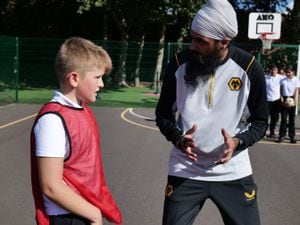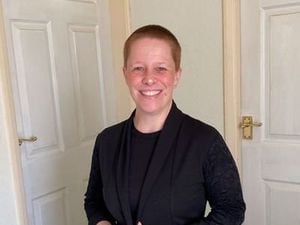We owe so much to fallen war heroes
Talking Point columnist Christine Hawthorne on why we should always remember them

My own grandfather was a serving soldier during the Great War.
November 11, 2018, marks one hundred years since the end of the war to end all wars.
If only that had been true. If only the supreme sacrifice of thousands of brave people during the First World War could have prevented the wars which have happened since.
We should never forget what those brave men and women did during not just First World War, but also the Second World War and all the other conflicts since.
We wear a red poppy on our lapel every November not to promote war, but to honour those who fought, to remember those who lost their lives, to remember those injured in battle.
Their sacrifice, their selflessness, their bravery, should never, ever, be forgotten.
Young men of 18 marched bravely off to battle back in 1914, not knowing what they were getting into, not understanding the awful things that may befall them.
The mud, the trenches, the shells, the guns, mustard gas, barbed wire, shell shock, the list goes on.
The sheer terror of being bombarded by the big guns.
The terrible reality of having to climb a wooden ladder on the sound of a whistle and run towards the enemy, any minute knowing that they could be badly injured or killed.
The confusion, the noise, the unknown must have been utterly terrifying.
Shell shock was not known, it was put down to cowardice, men who became mentally ill due to the awful conditions they had to endure were taken out in front of a firing squad and shot dead because nobody understood that the terror they had been subjected to had become so bad for them that they could no longer cope.
My grandfather was an ordinary man, he worked in a factory, was a member of the territorial army, he smoked woodbines and he liked to drink his tea strong, ‘so that the spoon stands up in it’, he loved the Wolves and he would cry when his team lost, though he would sing if they won, swinging his football rattle as he sang his way home after the match!
He was never the same after the war, he was gassed and he suffered for the rest of his life with his breathing, prompting the coroner after his death to pronounce at his inquest that he had died due to being gassed during the war and that he was a war hero.
He was 72 when he died, though he had been a young man when the cry of ‘gas, gas, gas’ echoed through the trenches.
TB put him into a sanitorium before the war ended, the disease scared him so much that even when he returned home to his young wife and baby son, my father, that he spent months sleeping in a shed in his garden rather than risk his families health by passing on his illness.
To the ordinary, actually extraordinary, people who fought in the wars, both the 1st and 2nd, and all the conflicts since, we owe a huge debt of gratitude and we should never, ever forget.
My grandfather fought in the First World War. My great uncle was killed during the First World War. My father fought in the Second World War. Thank you. Lest we forget.
Christine is the voice behind the blog ‘Ramblings of a grandma on a mobility scooter’





